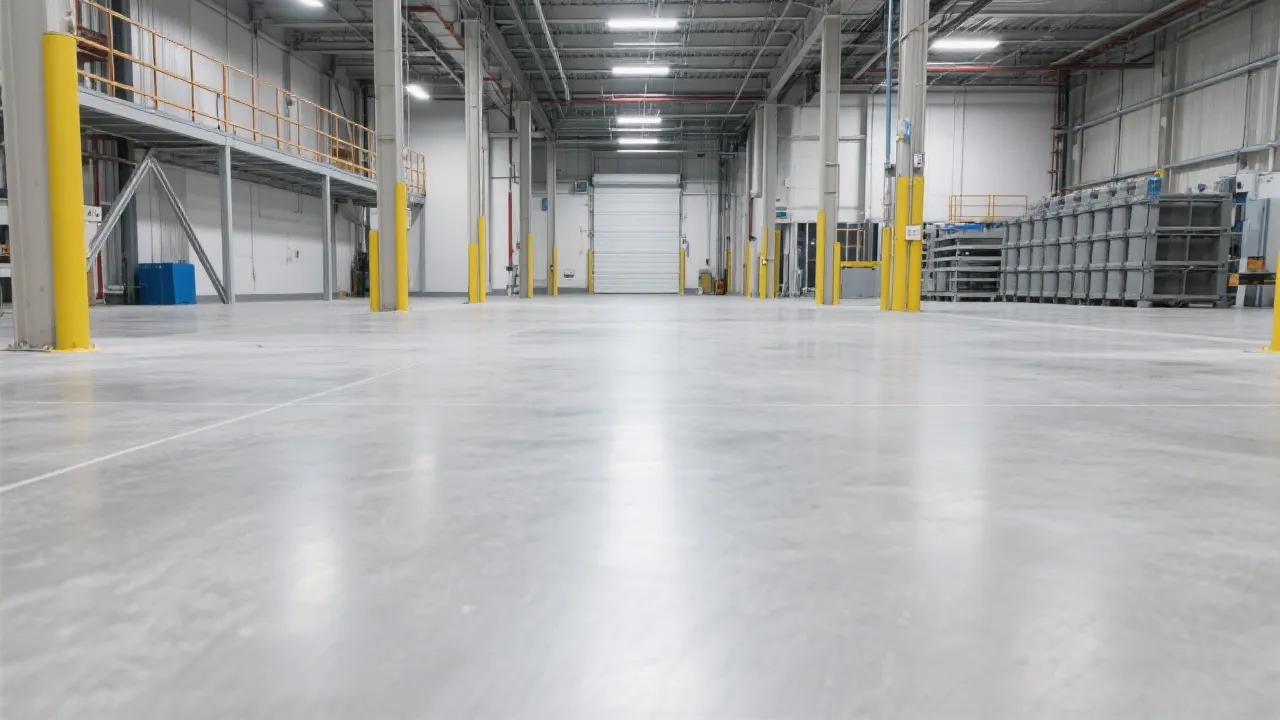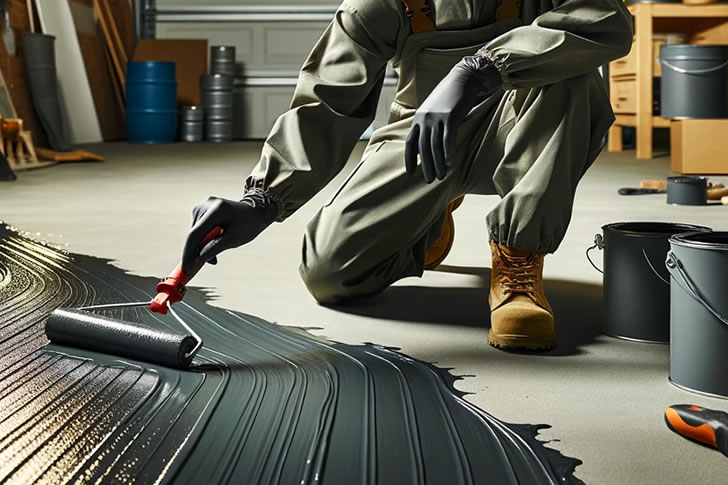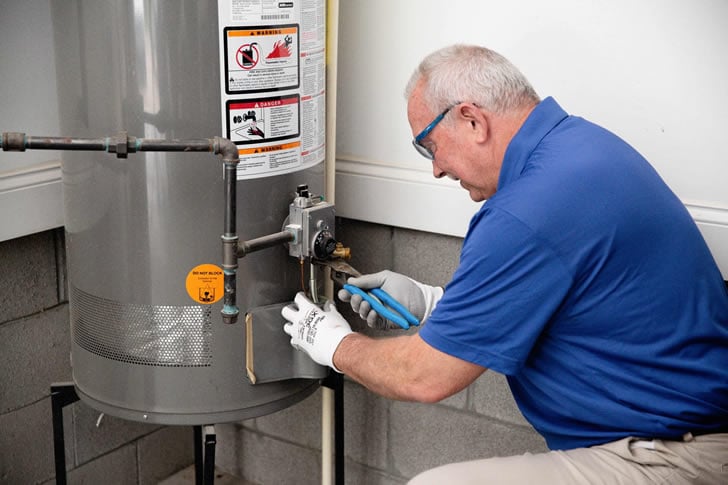Exploring High-Quality Industrial Floors
Industrial floors play a pivotal role in ensuring the operational efficiency and safety of industrial spaces. These specialized flooring solutions differ from residential options due to their ability to withstand heavy machinery, frequent traffic, and varied environmental conditions. Their features include durability, ease of maintenance, and specific functionalities depending on industry needs.

The Significance of Industrial Floors
Industrial floors, known as pisos industriais in Portuguese, are more than just surfaces to walk or drive over. They are foundational elements that account for safety, efficiency, and the overall aesthetics of industrial environments. Choosing the right flooring can significantly impact an industrial facility’s functionality, affecting everything from machinery performance to worker safety. In the world of industrial operations, where the stakes are high, the implications of flooring choices reach far beyond mere appearance; they influence operational flow, maintenance costs, and compliance with safety regulations.
Characteristics of Quality Industrial Floors
The primary considerations when selecting industrial floors include durability, resistance to wear and tear, chemical resistance, and ease of maintenance. These floors are typically made from materials such as concrete, epoxy, or polyurethane, each offering unique benefits. A well-constructed industrial floor should easily withstand the immense stress from heavy equipment and continual movement, with minimal signs of degradation over time.
Moreover, quality industrial floors can play a pivotal role in controlling the temperature within a facility, which is vital for industries that require specific climate conditions for both machinery and materials. For instance, thermal insulation properties can help maintain a stable environment, contributing to energy efficiency. Understanding the features and properties that constitute quality industrial flooring is crucial; it leads to informed decision-making that extends beyond the initial investment.
Types of Industrial Floors
Common types of industrial floors include:
- Concrete Floors: Known for their robustness, they are ideal for warehouses and manufacturing facilities. They have notable benefits like high compressive strength, adaptability to heavy machinery, and the ability to cover large areas efficiently. Nonetheless, treated concrete also plays a significant role in enhancing surface functionality, such as incorporating coatings to increase slip resistance.
- Epoxy Flooring: This offers a seamless finish that is visually appealing while resisting stains and corrosive substances. Epoxy floors can be formulated with varying levels of slip resistance, making them suitable not only for retail and warehouses but also for areas with more stringent safety regulations. Furthermore, the aesthetic appeal can enhance workplace morale, making environments more inviting for both employees and clients.
- Polyurethane Floors: A versatile option that provides superior resistance to temperature variations and chemical spills. These floors remain flexible over time, preventing cracking and damage due to heavy traffic or temperature changes. They are often used in facilities requiring a soft, cushioned floor underfoot, such as food processing plants or laboratories.
- Vinyl Composite Tile (VCT): This type is often used in areas requiring design flexibility combined with durability. VCT is cost-effective and can be customized with various colors and patterns, allowing businesses to create a welcoming aesthetic without sacrificing performance.
- Rubber Flooring: Frequently found in gym facilities and record-keeping areas, rubber floors provide exceptional cushioning that minimizes fatigue for workers who stand for prolonged periods. This flooring type demonstrates impressive sound-dampening qualities and is slip-resistant, which is critical in heavy-traffic environments.
Choosing the Right Industrial Floor
The choice of industrial floor largely depends on the specific demands of an operation. Considerations include load types, temperature variations, exposure to chemicals, and environmental conditions like humidity. For example, facilities that utilize heavy forklifts may require floors with high compressive strength and impact resistance. On the other hand, food processing units might prioritize hygienic surfaces that can withstand frequent cleaning with harsh chemicals.
Consulting with experts who understand the intricacies of industrial floors can lead to better long-term solutions and cost savings. Professional assessments can unveil potential challenges that might not be apparent during initial evaluations. Additionally, choices should be guided not just by current needs but also future expectations of growth, machinery upgrades, or regulatory changes. Input from each department affected by the flooring, including safety, management, and production, can ensure a well-rounded decision-making process.
Cost Considerations and Supplier Selection
Budget is a significant factor in selecting industrial floors. It's crucial to balance initial costs with longevity and maintenance needs to ensure economic feasibility. This includes understanding the total cost of ownership, which factors in installation, maintenance, and potential repair costs over the lifespan of the floor. A lower initial investment may lead to higher expenses if maintenance or durability is compromised.
Engaging with reputable suppliers who offer comprehensive warranties and post-installation support can enhance value over time, ensuring that any unforeseen issues are promptly addressed. It’s beneficial to research various suppliers, comparing products and speaking to previous clients to gauge consistent quality and service reliability. Additionally, manufacturers who prioritize innovation and sustainability in their materials provide a competitive edge, ensuring compliance with increasingly strict environmental regulations.
Step-by-Step Guide to Industrial Floor Installation
- Assessment: Begin with a thorough assessment of the environment and operational demands. Evaluate factors such as load capacity, chemical exposure, and safety requirements.
- Material Selection: Choose appropriate materials based on the assessment findings. Consider the pros and cons of each material in relation to specific needs and operational contexts.
- Site Preparation: Ensure the sub-floor is clean and leveled for optimal material adhesion. This stage may involve repairing existing flooring, removing debris, and ensuring moisture levels are controlled to prevent future complications.
- Installation: Professional installation tailored to material-specific techniques. Skilled applicators understand nuances such as mixing ratios for epoxy or curing times, which directly affect the outcome of the flooring performance.
- Curing: Allow sufficient time for the floor to fully cure, ensuring durability. This stage is critical as premature use can lead to issues such as cracking, discoloration, or poor performance.
- Post-Installation Inspection: Conduct a thorough inspection post-installation to ensure that the floor meets the desired standards and rectify any issues before use begins.
- Regular Maintenance Schedule: Establish a routine maintenance schedule to prolong the life of the floor. This includes daily cleaning, periodic deep cleanings, and inspections for wear and tear.
FAQs on Industrial Floors
- What is the lifespan of a typical industrial floor?
An industrial floor can last from 15 to 30 years, depending on usage and maintenance practices. Floors that are proactively maintained or that utilize top-quality materials will typically extend their service life significantly. - How do I maintain an epoxy floor?
Regular sweeping and damp mopping with non-abrasive cleaners are recommended to maintain its shine and durability. It’s also advisable to promptly address any spills to prevent staining or damage. - Are industrial floors environmentally friendly?
Many modern industrial floors are designed with sustainability in mind, incorporating eco-friendly materials and installation processes. Operators increasingly prioritize the use of recycled and low-VOC (volatile organic compounds) materials, which contribute to a healthier workplace and environmental impact. - Can industrial floors be repaired?
Yes, most industrial floors can be repaired, particularly those with minor surface damage or cracks. Understanding the repair options available can help facilities avoid costly replacements and extend the floor’s useful life. - What factors affect the cost of an industrial floor?
Costs can vary significantly based on the type of material chosen, the complexity of the installation process, preparation requirements, and the overall scale of the project. Additionally, geographic location and market demand can influence prices. - How do temperature variations affect industrial floors?
Temperature fluctuations can lead to expansion and contraction in materials, potentially causing cracks or failures over time. Selecting flooring materials that accommodate temperature changes is crucial for longevity, requiring specific formulations in materials like polyurethane.
Conclusion: The Impact of Well-Chosen Industrial Floors
Investing in pisos industriais is a decision that affects every aspect of industrial operation, from the performance of machinery to worker morale and safety. A well-chosen industrial floor not only enhances operational efficiency but also reflects a dedication to quality and excellence in industrial management. As industries evolve with technology, flooring solutions continue to adapt, offering innovative options that combine durability with aesthetic appeal and environmental sustainability.
Understanding the implications of flooring choices empowers businesses to create safer work environments while maximizing productivity and operational resilience. As such, the significance of industrial floors cannot be overstated; they are truly an investment in the future of any industrial operation. Evaluating materials, engaging skilled professionals, and adopting a proactive maintenance strategy can lead to substantial long-term benefits, affirming that the right flooring choice is foundational to achieving operational success.
Ultimately, the journey to a robust industrial flooring solution encompasses research, expert consultation, financial planning, and ongoing management. By embracing a holistic approach to industrial flooring, businesses can support their operations and the well-being of their workforce while reinforcing their commitment to quality and sustainability across the board.









